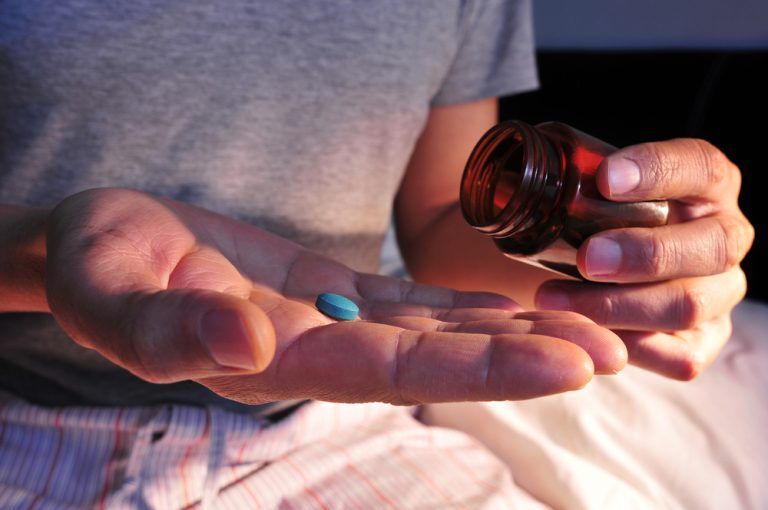The Different Types of Drug Rehab
Advance Minds Blog
A safe space to explore subjects within the community such as mental health, substance abuse and personal identity.
Our safe space also provides the opportunity for real individuals to express their hardships and success through writing.
The Different Types of Drug Rehab: Which Is Right for You?

Recovering from drug addiction requires the right support system and treatment plan.
With various types of rehab programs available, choosing the best option depends on your needs, lifestyle, and addiction severity.
Below is a breakdown of the different types of drug rehab to help you decide which one is right for you.
1. Inpatient Rehab (Residential Treatment) 🏥
- Patients live at the facility and receive 24/7 medical and emotional support.
- Programs typically last 30, 60, or 90 days, but some may be longer.
- Provides structured therapy, medical detox, and relapse prevention training.
- Ideal for those with severe addiction or who need a distraction-free environment.
👉 Why It Matters: Inpatient rehab offers a high level of care and support, reducing the risk of relapse during early recovery.
2. Outpatient Rehab 🏡
- Patients live at home while attending scheduled treatment sessions.
- Sessions can be daily or weekly, depending on the program.
- Includes therapy, counseling, and group support but allows more flexibility for work or family commitments.
- Best suited for those with mild to moderate addiction who have a stable home environment.
👉 Why It Matters: Outpatient rehab allows individuals to receive treatment while maintaining their daily responsibilities.
3. Partial Hospitalization Program (PHP) 🏨
- Also called "day rehab," offering structured treatment without overnight stays.
- Patients attend therapy and medical care for 6–8 hours per day, several days a week.
- Combines elements of inpatient and outpatient care for those needing more structure.
- Suitable for those who need intensive treatment but don’t require 24/7 supervision.
👉 Why It Matters: PHP provides comprehensive care while allowing patients to return home after treatment.
4. Intensive Outpatient Program (IOP) ⏳
- A step down from PHP, requiring fewer hours per week in treatment.
- Focuses on counseling, therapy, and relapse prevention strategies.
- Patients can continue work, school, or family life while in recovery.
- Best for those who need structured support but don’t require hospitalization.
👉 Why It Matters: IOPs offer flexibility while providing strong recovery support.
5. Detox Programs 💊
- Medical detox helps patients safely withdraw from drugs or alcohol.
- May include medication-assisted treatment (MAT) to ease withdrawal symptoms.
- Can be offered in inpatient or outpatient settings, depending on the severity.
- Detox is only the first step—further treatment is needed for long-term recovery.
👉 Why It Matters: A medically supervised detox ensures safety and comfort during withdrawal.
6. Sober Living Homes 🏠
- Transitional housing for those who have completed rehab but need a supportive environment.
- Residents live in a drug-free community with peers in recovery.
- Provides accountability, structure, and ongoing support.
- Ideal for those not yet ready to return to independent living.
👉 Why It Matters: Sober living homes help maintain long-term sobriety by reinforcing healthy routines.
7. Faith-Based or Holistic Rehab 🙏🌿
- Faith-based programs integrate spiritual guidance with addiction treatment.
- Holistic rehabs focus on alternative therapies like meditation, yoga, and nutrition.
- These programs emphasize mental, emotional, and spiritual healing.
- Best for individuals who prefer a spiritual or natural approach to recovery.
👉 Why It Matters: These programs support personalized healing beyond traditional rehab methods.
Which Rehab is Right for You? 🤔
The right rehab depends on:
✔
Severity of addiction (mild, moderate, or severe)
✔
Support system at home (stable or unstable environment)
✔
Work and family responsibilities (need flexibility or full-time care)
✔
Financial situation (insurance coverage, affordability)
✔
Personal beliefs and preferences (faith-based, holistic, or traditional methods)
Seeking professional guidance from a doctor or addiction specialist can help determine the best rehab for you.
Final Thoughts
Choosing the right drug rehab is a crucial step toward recovery.
Whether you need 24/7 care in an inpatient facility or flexible outpatient support, there’s a program that can help you regain control of your life. With the right treatment and dedication, long-term sobriety is possible! 🌟💙
















